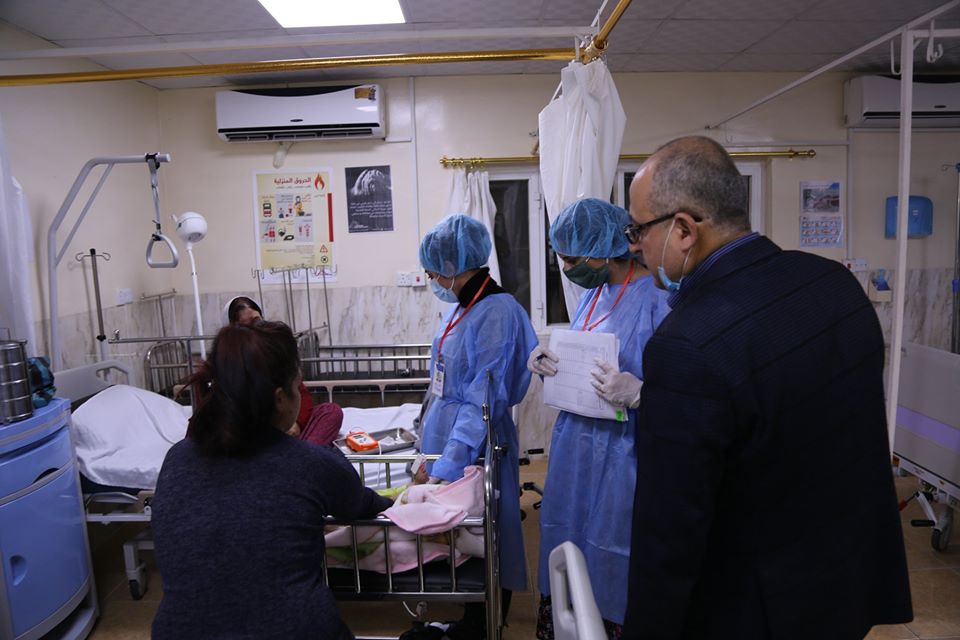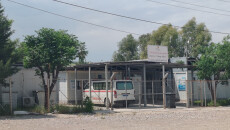The director of Shingal (Sinjar) Hospital submitted the names of 229 hospital employees to the Nineveh Health Directorate to enroll them in an intensive training course for lack of experience in treating patients and using medical devices and supplies.
On May 23, the Nineveh Health Directorate approved the transfer of the 294 Shingal Hospital staff to Mosul to complete a three-month training course before returning to Shingal, a matter provoked the employees.
Sami Sidou, a paramedic enlisted for the training, said, “My salary is 500,000 dinars (USD350). Transportation to and from Mosul costs me 25,000 daily, which is costly.”
"If the course is to gain experience, then I studied my specialty well and have the necessary experience... I have been working here for a year, but now they remember that we have to receive training in Mosul."
Health officials in Shingal, including the director of the district hospital, say that it is necessary to receive training to serve the citizens.
“The training takes three months, after which they return to their workplaces,” said Dr. Luqman Sultan, director of Shingal General Hospital.
He affirmed that most of them lack practical experience.
“We have some members who are so inexperienced that they need ten attempts to insert a cannula into a patient, which raises the dissatisfaction of the patients and their families.”
The director of Shingal Hospital pointed out that “the newly appointed staff lack experience, especially in the field of using the advanced equipment recently brought to the hospital.”
Iraq’s healthcare system which was once one of the most advanced in the region now is in serious crisis. There’s a shortage of drugs and the medical staff to administer it. Over the past three decades the country has been ravaged by Iraqi-Iran war, Saddam Hussein’s invasion of Kuwait, ousting of Saddam regime followed by sectarian violence, the war against al-Qaeda and the rise of Islamic State in Iraq and Syria ISIS.
The political chaos after 2003, pushed an estimated 15,000 out of 52,000 registered Iraqi doctors to leave the country. The young student doctors primarily seek training and life abroad rather than permanent state employment.
We have some members who are so inexperienced that it takes ten attempts to place a cannula on a patient
"I asked the Director General of Nineveh Health to include the 229 members in a three-month training course in Mosul for the public interest. The staff misunderstood me. They believe that I want to send them away from Shingal. This is not true."
He stressed that per the Iraqi Ministry of Health program, recruits must serve in hospitals in the governorate center for a year.
“I do not know how they came to Shingal without undergoing training.”
There are two general hospitals and 28 health centers in Shingal district, supervised by 50 specialist doctors and more than 2,000 employees.
Those included in the training, according to the decision of the Health Directorate, are those appointed last year.
In 2019, the Iraqi government allocated just 2.5% of the state’s $106.5 billion budget to its health ministry, while security forces received 18% and the oil ministry 13.5%. The same was true for 2014.
Over the past decade, data from the World Health Organization WHO shows that Iraq’s central government has consistently spent far less per capita on healthcare than its much poorer neighbors - $161 per citizen each year on average, compared to Jordan’s $304 and Lebanon’s $649, a report by Reuters found.
Dr. Dilshad Ali, from the Nineveh Health Department, told (KirkukNow), “The decision to subject the members to training came at the request of the directors of Shingal hospitals. The staff must adhere to the place that was assigned to them,”
Dr. Jamal Hussein, a health sector official who supervises the 28 health centers of Shingal, said, "We suffer from a lack of staff. Our biggest problem is the scarcity of doctors. However, we will not let the departure of these employees to Mosul greatly affect our work."
But he also suggested "receiving training within Shingal Hospital."






